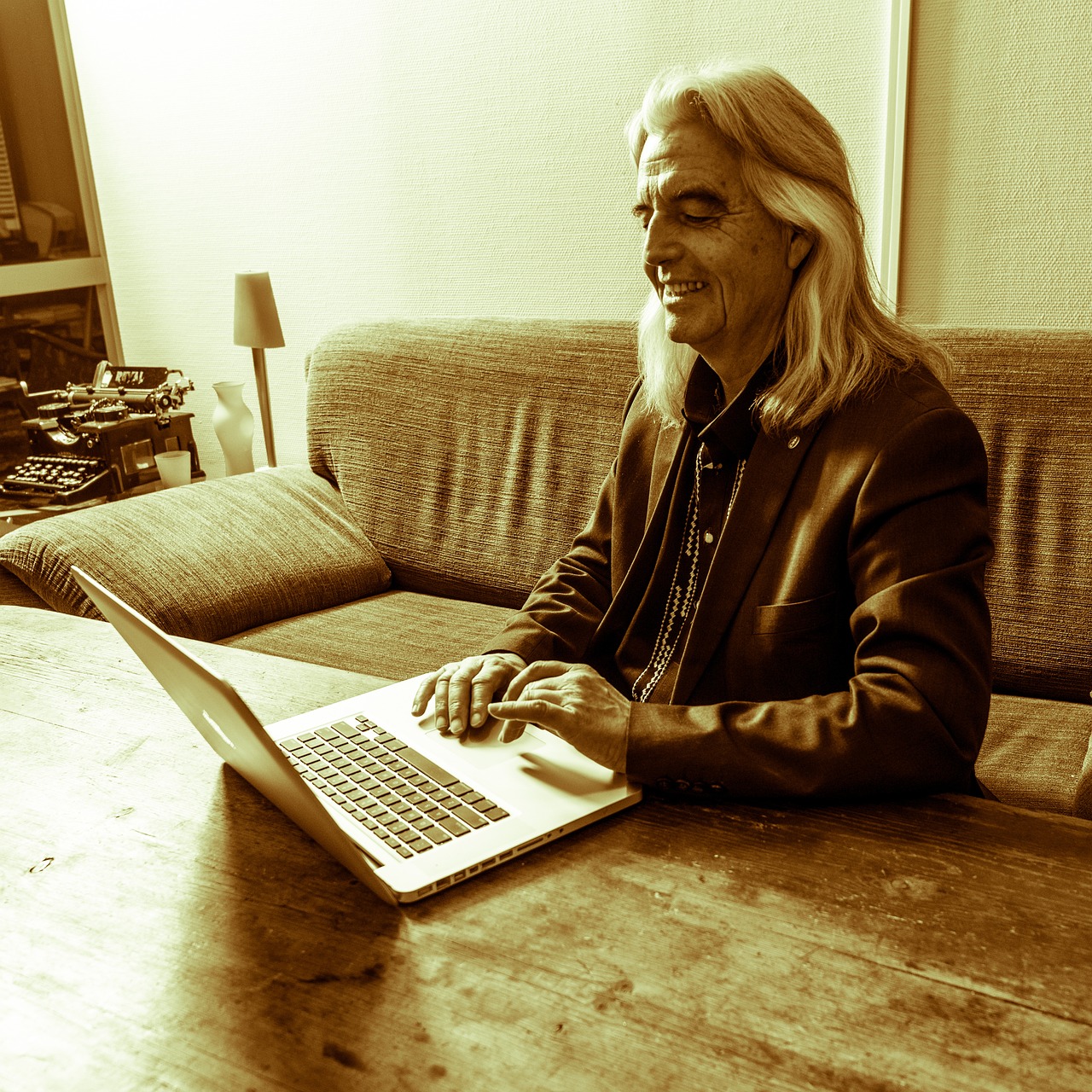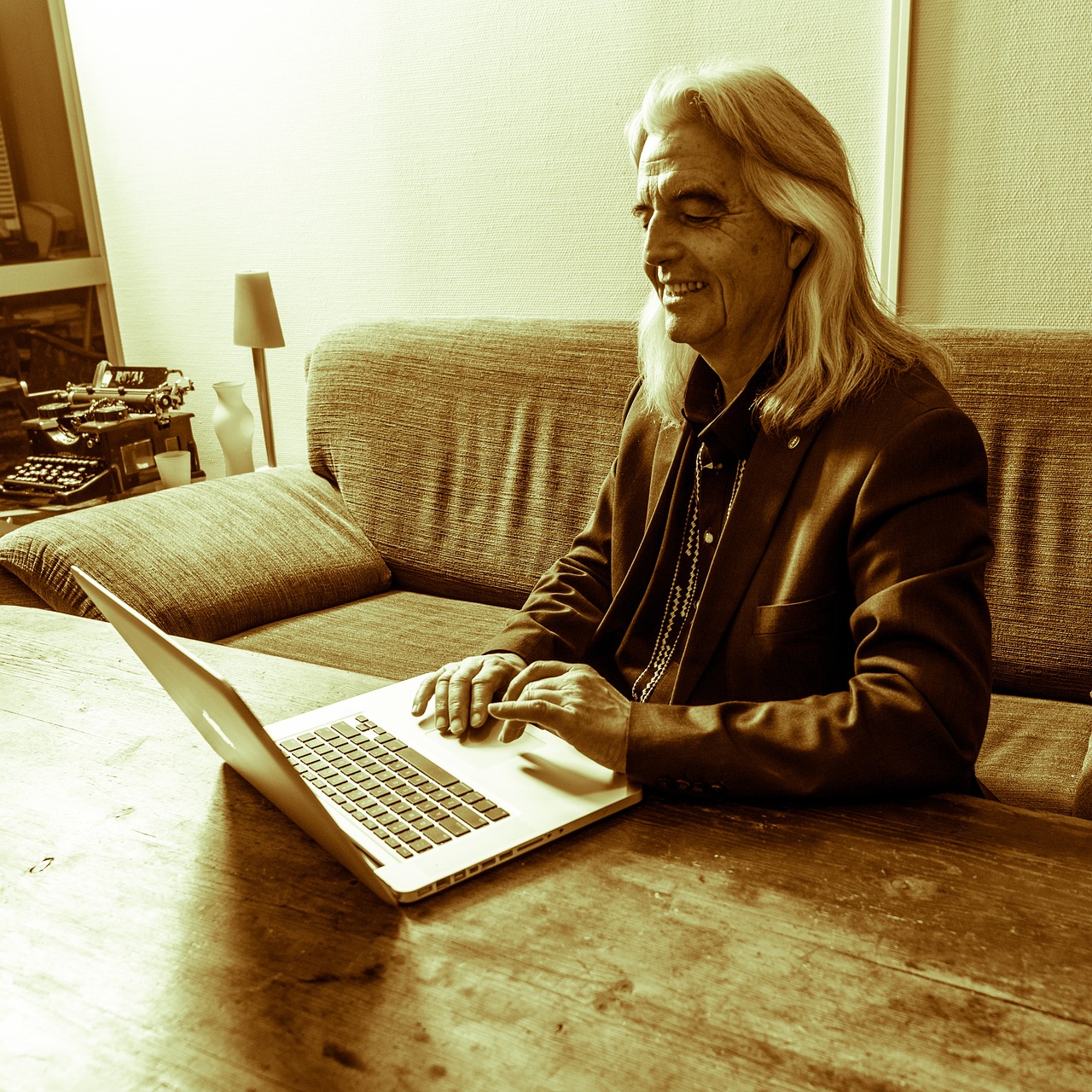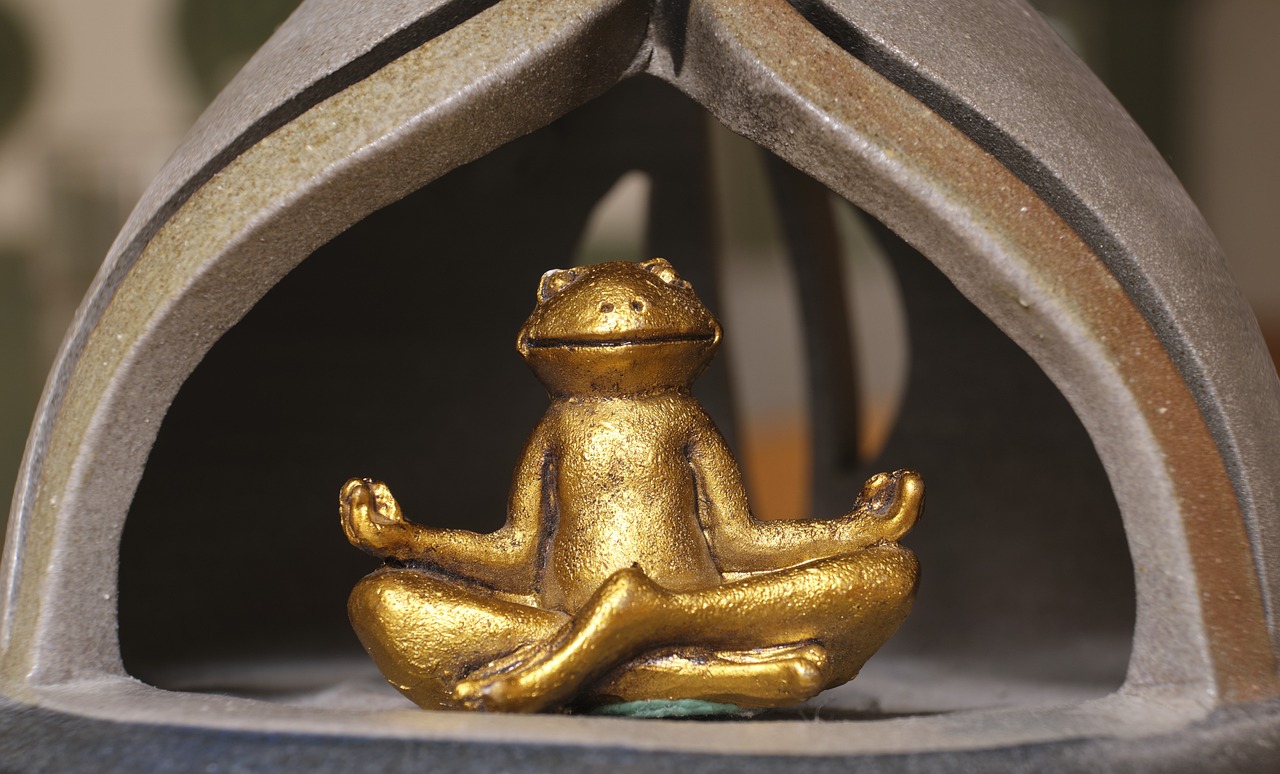Consciousness - The Beauty of the Human Mind
Have you ever paused to think about what it means to be conscious? The concept of consciousness is more than just a simple state of awareness; it’s a complex tapestry woven from our thoughts, feelings, perceptions, and experiences. This article explores the intricate nature of consciousness, its various dimensions, and its significance in understanding the human experience and our place in the universe. From the moment we wake up to the time we drift off to sleep, consciousness shapes our reality, guiding our actions and influencing our interactions with the world around us.
At its core, consciousness is what allows us to experience life in all its vivid colors. Imagine walking through a bustling market, where the aroma of spices fills the air, the chatter of vendors creates a lively atmosphere, and the vibrant colors of fruits and vegetables dance before your eyes. This rich experience is made possible by consciousness, which enables us to process sensory information and create meaning from it. But what exactly is consciousness? Is it merely a byproduct of brain activity, or does it hold a deeper significance in our existence?
Throughout history, philosophers, scientists, and thinkers have grappled with the nature of consciousness. Some argue that it is a byproduct of evolutionary processes, while others believe it transcends physical existence. The questions surrounding consciousness are not only profound but also essential for understanding who we are as human beings. As we delve deeper into the layers of consciousness, we will uncover its various states, the science behind it, and its role in shaping our identities and understanding of the universe.
In this exploration, we will journey through the different levels of consciousness, from our everyday waking state to the more elusive altered states. Each level offers unique insights into how we perceive and interact with the world. Moreover, we will examine the scientific perspectives that seek to unravel the mysteries of consciousness, highlighting the advancements in neuroscience and psychology that have emerged in recent years.
Ultimately, consciousness is not just a topic of academic interest; it is the essence of what it means to be human. It influences our thoughts, drives our actions, and connects us to one another and the universe at large. As we navigate through this intricate landscape, we invite you to reflect on your own experiences and the profound beauty that consciousness brings to your life.
- What is consciousness? - Consciousness refers to the state of being aware of and able to think about one's own existence, thoughts, and surroundings.
- Are there different levels of consciousness? - Yes, consciousness can exist in various states, including waking awareness, dreaming, and altered states induced by meditation or substances.
- How does consciousness relate to identity? - Consciousness plays a crucial role in shaping our self-concept and personal identity, influencing how we perceive ourselves and our place in the world.
- Can consciousness exist outside of the brain? - This is a topic of philosophical debate, with various theories exploring the potential for consciousness to transcend physical existence.

The Nature of Consciousness
When we dive into the depths of consciousness, we find ourselves navigating a complex landscape that has fascinated philosophers, scientists, and artists alike for centuries. But what is consciousness, really? At its core, consciousness is the state of being aware of and able to think about one’s own existence, thoughts, and surroundings. It’s like the spotlight that illuminates our experiences, allowing us to engage with the world around us. Imagine walking into a dark room; without light, you stumble and fumble, but once the light is on, everything becomes clear. This is how consciousness operates in our minds.
To understand consciousness better, we can break it down into several characteristics that define this enigmatic quality:
- Awareness: The ability to recognize and respond to stimuli in our environment.
- Intentionality: Our thoughts and perceptions are often directed towards something, whether it's a memory, a feeling, or a tangible object.
- Subjectivity: Each person's conscious experience is unique, shaped by individual perceptions and interpretations.
- Continuity: Consciousness is not static; it flows and changes, reflecting our thoughts and feelings in real-time.
Philosophically, consciousness raises profound questions about existence and the nature of reality. Are we merely biological machines, or is there something more? This inquiry leads us to ponder the mind-body problem, which explores the relationship between our mental states and physical bodies. How can something as intangible as thought influence our physical actions? It’s a bit like trying to catch smoke with your bare hands—elusive and perplexing.
Moreover, consciousness is not just about individual experience; it also invites us to consider the collective aspect. Think about how shared experiences create cultural narratives that shape our lives. For instance, the stories we tell about ourselves and our communities are woven together through a shared consciousness. This collective awareness can lead to unity or division, depending on how we engage with it.
In summary, the nature of consciousness is a multifaceted phenomenon that encompasses awareness, intentionality, subjectivity, and continuity. It challenges us to explore not just who we are as individuals, but also how we connect with others and the universe at large. As we continue to unravel the mysteries of consciousness, we may find that understanding it is key to unlocking the deeper meanings of our existence.

Levels of Consciousness
When we think about consciousness, it’s like peering into a vast ocean, where each wave represents a different level of awareness. These levels are not just black and white; they are nuanced and complex, influencing how we perceive the world around us. Let’s dive deeper into these varying states of consciousness, from the clarity of waking life to the enigmatic realms of altered states.
The most familiar state is waking consciousness. This is where we spend the majority of our time, fully alert and engaged with our surroundings. In this state, our thoughts are coherent, our senses are sharp, and we navigate daily life with purpose. Imagine this as the bright, sunny day where everything is visible and clear. We make decisions, interact with others, and experience life’s myriad moments. But what happens when we drift away from this state?
Waking consciousness is characterized by several key features that dictate our daily experiences:
- Attention and Focus: Our ability to concentrate on specific tasks or stimuli is crucial. Attention acts like a spotlight, illuminating certain aspects of our environment while leaving others in the shadows.
- Perception and Reality: What we perceive in waking life is heavily influenced by our consciousness. It shapes our understanding of reality, filtering experiences through our beliefs, emotions, and past experiences.
As we navigate through waking consciousness, we often find ourselves in a constant dance of attention and perception. Think of it as a theater performance; the stage is set with countless props (our experiences), but our focus determines which ones take center stage. This interplay is essential for our interactions and understanding of the world.
Now, let’s shift gears and explore altered states of consciousness, which can be as transformative as they are intriguing. These states can arise from various sources, such as dreams, meditation, or even the use of psychedelics. They invite us into realms where the usual rules of reality seem to bend and twist.
In altered states, the mind can experience a sense of liberation, often leading to profound insights or creative breakthroughs. For instance, during meditation, individuals may find themselves transcending ordinary thought patterns, tapping into a deeper sense of awareness. This can be likened to stepping into a hidden garden, where the usual noise of life fades away, allowing for reflection and clarity.
On the other hand, dreams represent another fascinating aspect of altered consciousness. In dreams, our minds weave stories and scenarios that can feel incredibly real, even though they exist only in the realm of imagination. These nocturnal adventures can reveal hidden desires, fears, or unresolved conflicts, serving as a mirror reflecting our inner selves.
It's important to recognize how these different levels of consciousness impact our lives. They shape our thoughts, behaviors, and even our identities. Understanding these layers can help us navigate our experiences more effectively, leading to a richer, more fulfilling life.
As we continue to explore the depths of consciousness, it becomes clear that each level offers unique insights into our existence. From the clarity of waking life to the mysteries of altered states, consciousness is a multifaceted gem, reflecting the beauty and complexity of the human experience.
- What is consciousness?
Consciousness is the state of being aware of and able to think about one's own existence, thoughts, and surroundings.
- What are the different levels of consciousness?
The main levels include waking consciousness, altered states (like dreams and meditation), and unconsciousness.
- How does altered consciousness affect perception?
Altered states can shift our perception, allowing for new insights and experiences that differ from our waking reality.

Waking Consciousness
Waking consciousness is that vibrant state of being where we are fully aware of ourselves and our surroundings. It's like flipping on a light switch in a dark room; suddenly, everything is illuminated, and we can navigate our lives with clarity and intention. In this state, we engage with the world through our senses, thoughts, and emotions, creating a rich tapestry of experiences that shape our daily lives. Have you ever stopped to think about how this awareness influences your decisions, interactions, and even your dreams? It's fascinating to consider!
In waking consciousness, we experience a myriad of sensations and thoughts that guide our actions. This state is characterized by several key elements:
- Awareness: The ability to perceive and understand our environment, emotions, and thoughts.
- Attention: The focus we apply to specific stimuli, helping us filter out distractions.
- Intentionality: The capacity to act with purpose based on our awareness and attention.
Attention plays a crucial role in this state. It’s not just about being awake; it’s about where we direct our focus. Imagine trying to read a book in a crowded café; your ability to concentrate on the words while tuning out the background chatter is a testament to your waking consciousness. This selective attention helps us prioritize information and influences how we interact with the world around us. It’s almost like having a spotlight that highlights certain aspects of our experience while casting others into shadow.
Moreover, our perception of reality is intricately tied to our waking consciousness. The way we interpret our surroundings is not merely a passive reception of information; it's an active construction of meaning. For instance, two people can witness the same event but come away with entirely different interpretations based on their individual consciousness. This subjectivity raises intriguing questions: How much of our reality is shaped by our consciousness? Are we seeing the world as it truly is, or are we filtering it through our unique experiences and biases?
To illustrate this further, consider the following table that highlights how consciousness influences our perception:
| Aspect | Influence of Consciousness |
|---|---|
| Emotional State | A person feeling happy may perceive a neutral event as positive, while someone feeling sad may view it negatively. |
| Past Experiences | Someone who has had a traumatic experience may react differently to a similar situation compared to someone with a neutral background. |
| Expectations | Our beliefs about what will happen can shape our experience, often leading us to find what we expect rather than what is. |
In summary, waking consciousness is a complex and dynamic state that shapes our experiences and interactions with the world. It’s more than just being awake; it’s about how we engage with life. By understanding the nuances of this state, we can gain insights into our behaviors, enhance our decision-making, and cultivate a deeper awareness of ourselves and our surroundings. So, the next time you find yourself lost in thought or overwhelmed by sensations, take a moment to reflect on the beauty and complexity of your waking consciousness.
- What is waking consciousness? Waking consciousness refers to the state of being fully aware and alert, where individuals engage with their surroundings through their senses, thoughts, and emotions.
- How does attention affect waking consciousness? Attention helps individuals focus on specific stimuli, filtering out distractions and influencing how they perceive and interact with the world.
- Can waking consciousness vary from person to person? Yes, individual experiences, emotional states, and past experiences can significantly influence how one perceives reality during waking consciousness.

Attention and Focus
Attention and focus are like the spotlight on a stage, illuminating the aspects of our lives that matter most while casting everything else into shadow. Imagine walking through a bustling city street; the noise of traffic, the chatter of people, and the vibrant colors of storefronts all vie for your attention. Yet, amidst this chaos, you can choose to focus on a single conversation or a captivating book. This ability to selectively concentrate is what makes our consciousness so powerful.
At its core, attention refers to the cognitive process of selectively concentrating on specific stimuli while ignoring others. This process is crucial for navigating our complex world. Without it, we would be overwhelmed by the sheer volume of information our senses receive every moment. But how does this work? Think of attention as a mental filter that helps us prioritize what we perceive. It allows us to engage deeply with certain tasks or experiences, enhancing our understanding and retention of information.
Focus, on the other hand, is the intensity of that attention. It's about how deeply we can immerse ourselves in a task or thought. When we're focused, we can block out distractions and hone in on what truly matters. This can lead to a state of flow, where time seems to stand still, and we become fully absorbed in our activities. Have you ever experienced this while engrossed in a hobby or a challenging project? It’s that exhilarating feeling of being completely in the zone.
However, achieving sustained attention and focus can be challenging in our fast-paced, distraction-laden world. With notifications buzzing on our phones and the constant pull of social media, our ability to concentrate is often compromised. To combat this, we can adopt several strategies:
- Minimize Distractions: Create a dedicated workspace free from interruptions.
- Set Clear Goals: Define what you want to achieve in a given time frame.
- Practice Mindfulness: Engage in meditation or breathing exercises to enhance your ability to focus.
- Take Breaks: Allow your mind to rest and reset to maintain high levels of productivity.
Research shows that the brain can only focus on a limited amount of information at any given time. This limitation is known as the "bottleneck effect." To illustrate this, consider a table that outlines the different types of attention:
| Type of Attention | Description |
|---|---|
| Selective Attention | The ability to focus on a specific object in the environment for a certain period. |
| Divided Attention | The capacity to process multiple sources of information simultaneously. |
| Sustained Attention | The ability to maintain focus on a task over a prolonged period. |
| Alternating Attention | The ability to switch focus between tasks that require different cognitive demands. |
By understanding these different types of attention, we can better manage our focus and improve our productivity. Attention and focus are not just about being busy; they are about being present. When we direct our attention wisely, we enrich our experiences and deepen our understanding of the world around us. So, the next time you find yourself getting distracted, remember the power of your conscious mind. Harness it, and watch how it transforms your daily life into a more meaningful journey.
- What is the difference between attention and focus?
Attention is the act of concentrating on a specific stimulus, while focus refers to the intensity of that concentration. - How can I improve my focus?
You can improve your focus by minimizing distractions, setting clear goals, and practicing mindfulness techniques. - What are the types of attention?
The main types of attention include selective, divided, sustained, and alternating attention. - Why is attention important?
Attention is crucial for processing information, making decisions, and engaging in meaningful experiences.

Perception and Reality
Have you ever wondered how two people can witness the same event yet walk away with completely different interpretations? This fascinating phenomenon lies at the intersection of perception and reality. Our consciousness shapes how we perceive the world around us, acting as a lens through which we view our experiences. This lens is influenced by a myriad of factors, including our past experiences, cultural background, and even our current emotional state.
To put it simply, perception is like a personal filter. Imagine wearing glasses that tint everything a certain color; that’s how our consciousness can alter our understanding of reality. For instance, if someone has a negative experience with a dog, they might perceive all dogs as threatening, while another person who grew up with dogs may see them as loyal companions. This divergence highlights the subjective nature of perception.
Moreover, consciousness does not just passively receive information; it actively interprets and constructs our reality. Consider how our brain processes sensory information. It takes raw data from our senses—sight, sound, touch—and constructs a coherent narrative. This process can sometimes lead to cognitive biases, where our beliefs and expectations shape our perceptions. For example, if we expect a movie to be great based on its trailer, we might overlook flaws that others readily see.
Furthermore, the concept of social constructs plays a significant role in shaping our perceptions. Our understanding of reality is often influenced by societal norms and values. For instance, the idea of beauty varies dramatically across cultures. What one society may deem attractive, another might not even consider appealing. This highlights how our perceptions are not just personal but are also shaped by the collective consciousness of the society we belong to.
In the realm of science, researchers have delved into how our brains construct reality. Studies have shown that our brains are constantly making predictions based on past experiences. This predictive nature means that our perceptions can sometimes be flawed, leading to misinterpretations of reality. For instance, optical illusions are a perfect example of how our brain can be tricked into seeing something that isn’t there, further emphasizing the gap between perception and reality.
To summarize, perception is a complex interplay of our consciousness and the external world. It is a dynamic process that shapes our understanding of reality, influenced by personal experiences, societal norms, and cognitive biases. Recognizing this complexity can lead to a deeper understanding of ourselves and our interactions with others. As we navigate through life, it’s essential to remember that our perception is just one of many ways to interpret the world around us.
- What is the difference between perception and reality?
Perception is how we interpret and understand our experiences, while reality is the objective state of things as they exist, independent of our interpretations. - Can perception change over time?
Yes, perception can change based on new experiences, information, and shifts in emotional or mental states. - How do cultural differences affect perception?
Cultural backgrounds can shape our beliefs, values, and interpretations, leading to different perceptions of the same reality.

Altered States of Consciousness
When we think about consciousness, we often picture our everyday experiences—waking up, going to work, chatting with friends. But what about those moments when reality seems to shift? (ASCs) offer a fascinating glimpse into the vast potential of the human mind. These states can be induced through various means, such as meditation, sleep, or even the consumption of certain substances, leading to experiences that can feel profoundly different from our typical waking life.
Imagine stepping into a dream world where the laws of physics bend and twist, or experiencing a moment of deep meditation where time feels suspended. These altered states can range from mild changes in perception to profound transformations of awareness. They allow us to explore the depths of our psyche and can often lead to unique insights about ourselves and the universe.
One of the most commonly discussed ASCs is dreaming. While we sleep, our minds create vivid narratives that can be both bizarre and enlightening. Dreams can serve as a canvas for our subconscious, revealing hidden fears, desires, and thoughts that we may not confront in our waking lives. The exploration of dreams has fascinated psychologists and philosophers alike, as they provide a window into the workings of our unconscious mind.
Another intriguing ASC is meditation. Through focused attention and mindfulness, individuals can achieve states of deep relaxation and heightened awareness. This practice has been linked to numerous benefits, including reduced stress, improved emotional regulation, and enhanced cognitive function. Meditation allows practitioners to step outside the chaos of daily life, leading to moments of clarity and profound peace.
Then there are the more controversial ASCs induced by psychedelics. Substances like LSD and psilocybin can drastically alter perception, leading to experiences that are often described as mystical or transcendent. Users frequently report a sense of interconnectedness with the universe, profound insights, and a reevaluation of their personal beliefs. While these experiences can be enlightening, they also come with risks and should be approached with caution and respect.
To better understand the various altered states of consciousness, let's take a look at some common types:
| Type of ASC | Description |
|---|---|
| Dreaming | Vivid narratives created during sleep, reflecting our subconscious mind. |
| Meditation | Deep relaxation and heightened awareness achieved through focused attention. |
| Psychedelics | Substances that alter perception, often leading to mystical experiences. |
| Hypnosis | A trance-like state that can enhance focus and suggestibility. |
Each of these states offers a unique lens through which we can examine consciousness and its many facets. They challenge our understanding of reality and encourage us to explore the depths of our own minds. Whether through the dream world, the calm of meditation, or the vivid experiences induced by psychedelics, altered states of consciousness remind us that our perception of reality is not as fixed as we might think.
In essence, ASCs serve as a reminder of the incredible complexity of the human experience. They invite us to question our understanding of consciousness and to explore the boundaries of our minds. As we continue to study and understand these states, we may uncover even more about what it means to be human, ultimately leading to a deeper appreciation of our place in the universe.
- What are altered states of consciousness? - ASCs are conditions where the mind experiences a shift in perception, awareness, and cognition.
- How can altered states be induced? - They can be induced through various methods, including meditation, sleep, and the use of psychedelics.
- Are altered states safe? - While some ASCs are safe, others, especially those induced by substances, can carry risks and should be approached with caution.
- What are the benefits of experiencing altered states? - Benefits can include personal insights, emotional healing, and enhanced creativity.

The Science of Consciousness
When we dive into the science of consciousness, we embark on a thrilling journey that intertwines neuroscience, psychology, and philosophy. This exploration aims to unravel the mysteries of how our minds work and what it means to be aware. At its core, consciousness is not just a passive experience; it is a dynamic interplay of brain activity, perception, and our subjective experience of the world. Researchers across various fields are tirelessly working to decode this enigmatic phenomenon, seeking answers to profound questions about our existence.
One of the most fascinating aspects of studying consciousness is the way it challenges our understanding of reality. For instance, consider the brain as a complex orchestra, where different sections must harmonize to produce a symphony of conscious experience. Neuroscientific studies have made significant strides in identifying which areas of the brain are activated during different states of consciousness. For example, the prefrontal cortex is often associated with higher cognitive functions, while the thalamus acts as a relay station for sensory information. These findings lead us to ponder: how do these neural activities translate into our rich tapestry of thoughts, emotions, and experiences?
To provide a clearer picture, let's take a look at a simple table summarizing some key brain regions involved in consciousness:
| Brain Region | Function |
|---|---|
| Prefrontal Cortex | Higher cognitive functions, decision making, and self-awareness |
| Thalamus | Relay sensory information to the cortex |
| Hippocampus | Memory formation and retrieval |
| Amygdala | Emotion processing and fear responses |
In addition to these neural correlates, psychological theories have emerged to explain consciousness from various angles. For instance, the cognitive approach posits that consciousness arises from the processing of information, while the behavioral perspective emphasizes observable actions as indicators of conscious thought. Meanwhile, the humanistic approach focuses on the individual's subjective experience and the quest for personal meaning. Each of these theories contributes a unique lens through which we can examine the vast landscape of consciousness.
As we delve deeper into the science of consciousness, we also encounter the concept of altered states, which can significantly expand our understanding. Practices such as meditation, dreaming, and even the use of psychedelics can alter our typical conscious experience, providing insights into the flexibility and malleability of our minds. These states challenge the notion of a fixed consciousness, suggesting that our awareness can shift and evolve based on internal and external influences.
Ultimately, the science of consciousness is not just about understanding the mechanics of the brain; it’s about grasping the very essence of what it means to be human. It raises essential questions about our identity, our place in the universe, and the profound connections we share with one another. As we continue to explore this fascinating field, we inch closer to answering the age-old question: what is consciousness, and why does it matter?
- What is consciousness? - Consciousness is the state of being aware of and able to think about one's own existence, thoughts, and surroundings.
- How is consciousness studied? - Researchers study consciousness through various methods, including neuroimaging, psychological experiments, and philosophical inquiry.
- What are altered states of consciousness? - Altered states are variations in consciousness that can occur through meditation, sleep, or the use of substances, leading to different experiences of awareness.
- Why is understanding consciousness important? - Understanding consciousness helps us gain insights into human behavior, identity, and our relationship with the universe.

Neuroscientific Perspectives
When we dive into the fascinating world of neuroscience, we find ourselves at the intersection of biology and consciousness. Neuroscientific perspectives on consciousness offer us a window into understanding how our brain functions and how these functions correlate with our conscious experiences. The brain is a complex organ, with billions of neurons firing in intricate patterns, creating the tapestry of our thoughts, emotions, and perceptions. But what does that really mean for our understanding of consciousness?
One of the most compelling aspects of neuroscience is its ability to map brain activity to specific conscious experiences. For instance, researchers have employed advanced imaging techniques, such as functional Magnetic Resonance Imaging (fMRI), to observe which areas of the brain activate during various tasks. This has led to significant insights into how different brain regions contribute to our awareness. For example, the prefrontal cortex is heavily involved in decision-making and self-regulation, while the temporal lobes play a critical role in memory and emotional responses.
Moreover, neuroscientific studies have shown that consciousness is not a static state but rather a dynamic process. It fluctuates based on numerous factors, including attention, environment, and even our physiological state. This is where the concept of neural correlates of consciousness comes into play. These are the specific brain states that correspond to conscious awareness. Understanding these correlates can help us unravel the mysteries of altered states of consciousness, such as those experienced during meditation or under the influence of psychoactive substances.
Consider the following table that summarizes key brain regions associated with different aspects of consciousness:
| Brain Region | Function |
|---|---|
| Prefrontal Cortex | Decision-making, self-awareness |
| Temporal Lobes | Memory, emotional responses |
| Parietal Lobes | Spatial awareness, sensory integration |
| Occipital Lobes | Visual processing |
Furthermore, the study of consciousness has led to intriguing discussions about the nature of reality itself. For instance, some neuroscientists argue that our perception of reality is heavily influenced by how our brain interprets sensory information. This leads to the question: Are we truly experiencing the world as it is, or are we merely constructing a version of reality based on our conscious awareness? This philosophical inquiry ties back to the scientific exploration of consciousness and highlights the importance of understanding our neural processes.
In conclusion, neuroscientific perspectives on consciousness are not just about understanding the brain in isolation; they invite us to explore the profound relationship between our biological makeup and our conscious experiences. As we continue to unravel the complexities of the human mind, we realize that consciousness is not merely a byproduct of brain activity but a rich, intricate phenomenon that shapes our very existence. The journey into understanding consciousness is as much a scientific endeavor as it is a philosophical one, pushing the boundaries of what we know about ourselves and our place in the universe.
- What is consciousness? Consciousness refers to the state of being aware of and able to think about one's own existence, thoughts, and surroundings.
- How does neuroscience study consciousness? Neuroscience studies consciousness by examining brain activity and identifying the neural correlates that correspond to various conscious experiences.
- What are altered states of consciousness? Altered states of consciousness are non-ordinary states of awareness, such as those experienced during dreams, meditation, or under the influence of certain substances.
- Can consciousness exist without the brain? This question remains a topic of philosophical debate, with various theories proposing different views on the relationship between consciousness and the brain.

Psychological Theories
The quest to understand consciousness has led to the development of various psychological theories, each offering a unique lens through which we can explore the intricate workings of the human mind. These theories attempt to explain not only what consciousness is but also how it manifests in our thoughts, feelings, and behaviors. Among the most prominent psychological approaches are cognitive, behavioral, and humanistic theories, each contributing valuable insights into the nature of conscious experience.
Cognitive psychology focuses on the mental processes involved in perception, memory, and decision-making. It posits that consciousness arises from complex cognitive functions that allow individuals to process and interpret information from their environment. For instance, cognitive theorists argue that our ability to reflect on our thoughts and experiences is a critical aspect of consciousness. This self-reflective capacity enables us to learn from past experiences, plan for the future, and engage in problem-solving. In essence, cognitive psychology views consciousness as a dynamic interplay of mental processes that shape our understanding of reality.
On the other hand, behavioral psychology takes a different approach by emphasizing observable behaviors rather than internal mental processes. Behavioral theorists argue that consciousness can be inferred from actions rather than directly observed. They believe that our conscious experiences are shaped by environmental stimuli and reinforcement patterns. For example, if a person learns to associate a specific sound with a reward, their conscious response to that sound will be influenced by past experiences, leading to a learned behavior. This perspective suggests that consciousness is not just about awareness but is also intricately linked to how we interact with our surroundings.
Another significant perspective is offered by humanistic psychology, which emphasizes personal growth and self-actualization. Humanistic theorists argue that consciousness is deeply connected to our sense of self and our pursuit of meaning in life. They assert that individuals have an innate drive to realize their potential and that consciousness plays a crucial role in this journey. This theory posits that through self-awareness and introspection, individuals can better understand their emotions, motivations, and desires, ultimately leading to a more fulfilling life. In this sense, consciousness is not merely a state of being aware but a vital component of personal development and existential exploration.
To illustrate the differences among these theories, the following table summarizes their key characteristics:
| Theory | Focus | Key Concepts |
|---|---|---|
| Cognitive Psychology | Mental processes | Perception, memory, decision-making |
| Behavioral Psychology | Observable behavior | Stimuli, reinforcement, learned behavior |
| Humanistic Psychology | Personal growth | Self-actualization, meaning, self-awareness |
Each of these psychological theories provides a distinct perspective on consciousness, reflecting the complexity of human experience. By integrating insights from various approaches, we can gain a more comprehensive understanding of how consciousness influences our thoughts, behaviors, and identities. As we continue to explore the depths of consciousness, it becomes increasingly clear that it is not just a passive state of awareness but an active and dynamic element of our existence, shaping our lives in profound ways.
- What is consciousness? Consciousness refers to the state of being aware of and able to think about one's own existence, thoughts, and surroundings.
- What are the different levels of consciousness? Levels of consciousness include waking awareness, altered states (such as dreams and meditation), and subconscious processes.
- How do psychological theories explain consciousness? Psychological theories explain consciousness through various lenses, including cognitive processes, behavior patterns, and personal growth dynamics.
- Can consciousness be scientifically measured? While consciousness is challenging to quantify, neuroscientific approaches aim to correlate brain activity with conscious experiences.
- What role does consciousness play in identity? Consciousness shapes personal identity by influencing self-awareness, self-concept, and how individuals perceive their experiences and choices.

The Role of Consciousness in Identity
Have you ever stopped to think about what makes you, *you*? The answer lies intricately woven into the fabric of **consciousness**. Consciousness is not just a passive state of being; it's a vibrant tapestry that shapes our identity, influences our choices, and guides our understanding of ourselves in relation to the world. It's like the lens through which we view our experiences, and it plays a crucial role in forming our self-concept. Without consciousness, we would be mere spectators in our own lives, devoid of the rich narratives that define who we are.
At the heart of this exploration is the idea of **self-awareness**. Self-awareness is the ability to reflect on one’s thoughts, feelings, and actions. It’s the inner voice that asks, “Who am I?” and “What do I want?” This reflective process is vital for personal growth. For instance, when we take the time to contemplate our experiences, we begin to understand our motivations and desires. This self-reflection allows us to make informed decisions that align with our true selves. In essence, consciousness acts as a mirror, helping us to recognize our strengths and weaknesses, thus shaping our identity.
Another fascinating aspect of consciousness is its role in creating a **collective identity**. Think about the communities you belong to—whether it’s your family, cultural group, or social circle. Each of these groups has a shared set of beliefs and values that contribute to a collective consciousness. This shared awareness influences how we see ourselves and how we relate to others. For example, when we identify with a particular cultural background, it shapes our perspectives, behaviors, and even our aspirations. The social norms and values we absorb from our environment become part of our identity, illustrating how interconnected our consciousness is with those around us.
Moreover, the dynamic interplay between individual and collective consciousness can lead to profound transformations in identity. As we engage with diverse perspectives and experiences, our understanding of ourselves can evolve. This evolution is akin to a **chameleon changing its colors**—adapting to the environment while still retaining its core essence. In this light, consciousness is not static; it is fluid and ever-changing, allowing us to navigate the complexities of identity in a world that is constantly shifting.
To sum it up, consciousness is the bedrock of our identity. It provides us with the tools to reflect on our experiences, understand our place in the world, and connect with others. As we delve deeper into the nature of consciousness, we uncover not only the essence of who we are but also the profound connections that bind us to the universe. In this journey of self-discovery, we learn that our identity is not just a solitary experience; it is a shared adventure that transcends the boundaries of individuality.
- What is consciousness? Consciousness refers to the state of being aware of and able to think about one’s own existence, thoughts, and surroundings.
- How does consciousness influence identity? Consciousness shapes our self-awareness, allowing us to reflect on our experiences and form our identity based on our thoughts, feelings, and interactions.
- What is collective consciousness? Collective consciousness is the set of shared beliefs and values within a group that influences individual identities and social interactions.
- Can consciousness change over time? Yes, consciousness is dynamic and can evolve based on new experiences, perspectives, and personal growth.

Self-Concept and Awareness
When we talk about self-concept, we're diving into the very essence of who we are. It’s like looking into a mirror that reflects not just our physical appearance but also our beliefs, values, and experiences. The way we perceive ourselves shapes our interactions with the world around us. Have you ever wondered why two people can experience the same event but interpret it completely differently? That’s the power of self-concept at work!
Self-awareness is the key that unlocks the door to understanding our own minds. It’s that moment of clarity when we recognize our thoughts, feelings, and motivations. Think of it as being the captain of your own ship. Without awareness, you might be sailing aimlessly, tossed around by the waves of life. But with self-awareness, you can chart your course, navigate through challenges, and make informed decisions that align with your true self.
Moreover, self-awareness can be categorized into two types: internal self-awareness and external self-awareness. Internal self-awareness is about understanding your own thoughts and feelings, while external self-awareness involves recognizing how others perceive you. Both are essential for personal growth and effective communication. Here’s a quick breakdown:
| Type of Self-Awareness | Description |
|---|---|
| Internal Self-Awareness | Understanding your own emotions, strengths, weaknesses, and motivations. |
| External Self-Awareness | Recognizing how your behavior and emotions affect others’ perceptions of you. |
But why is self-concept and awareness so crucial? Well, they play a significant role in our personal development. When we understand who we are, we can set goals that resonate with our true selves. It empowers us to embrace our strengths and work on our weaknesses, leading to a more fulfilling life. Plus, it enhances our relationships. When we are aware of our own feelings and how they impact others, we can communicate better, resolve conflicts, and build deeper connections.
In a world where social media often distorts our self-image, cultivating a strong self-concept and awareness becomes even more vital. We are bombarded with images and messages that can make us question our worth. However, by grounding ourselves in our true values and beliefs, we can resist these external pressures and maintain a healthy self-esteem. Remember, your self-concept is not defined by likes or followers; it’s defined by your understanding of yourself.
In conclusion, self-concept and awareness are not just buzzwords; they are the foundations of a meaningful life. By engaging in self-reflection and seeking feedback from others, we can enhance our understanding of ourselves. So, take a moment today to check in with yourself. Ask questions like, “What do I truly value?” or “How do I want to be perceived by others?” This journey of self-discovery is ongoing and ever-evolving, but it’s one of the most rewarding paths you can take.
- What is self-concept? Self-concept refers to the beliefs and perceptions we hold about ourselves, encompassing our abilities, personality traits, and values.
- How can I improve my self-awareness? Improving self-awareness can be achieved through practices such as mindfulness, journaling, and seeking feedback from trusted friends or mentors.
- Why is self-awareness important? Self-awareness is crucial as it helps us understand our emotions and behaviors, leading to better decision-making and improved relationships.
- Can self-concept change over time? Yes, self-concept can evolve as we gain new experiences, insights, and perspectives throughout our lives.

Collective Consciousness
Have you ever felt a sense of belonging to something larger than yourself? That feeling can often be attributed to the concept of . This fascinating idea suggests that a group of individuals can share a set of beliefs, values, and experiences that transcend their individual consciousness. It's like being part of a grand symphony, where each instrument contributes to a harmonious whole. In this section, we will explore how collective consciousness shapes our identities and influences our societal norms.
At its core, collective consciousness is the sum of the thoughts, feelings, and experiences shared by a group. It encompasses cultural beliefs, societal values, and even the emotional climate of a community. Imagine walking through a bustling city—each person you pass carries their own story, yet they are all intertwined in the shared experience of urban life. This intertwining creates a collective narrative that shapes how we view the world and ourselves.
One of the most intriguing aspects of collective consciousness is how it can influence individual behavior. For instance, consider the following:
- Social Movements: When individuals unite for a common cause, their collective consciousness can spark significant social change. Think of movements like civil rights or environmental activism; these are fueled by a shared awareness and commitment to a greater good.
- Cultural Norms: The values and beliefs held by a community often dictate norms and behaviors. This can range from traditions and rituals to even the way we communicate with one another.
- Collective Memory: Shared experiences, especially traumatic ones, can create a collective memory that bonds individuals together. This shared history can influence how a group perceives itself and its future.
Moreover, the concept of collective consciousness extends beyond mere social interactions; it can also be seen in the realm of technology and social media. With the rise of the internet, individuals can connect with others across the globe, creating a virtual collective consciousness. This digital landscape allows for the rapid exchange of ideas and information, leading to the formation of new communities and shared identities. It's as if we're all part of a massive, interconnected web, where each click and share contributes to the collective understanding of humanity.
But what about the darker side of collective consciousness? Just as it can unite people for positive change, it can also lead to groupthink or the suppression of dissenting opinions. When a group becomes too focused on consensus, it may overlook critical perspectives that could challenge the status quo. This is where the importance of maintaining individual thought within the collective comes into play. Striking a balance between belonging and personal identity is crucial for a healthy society.
In conclusion, collective consciousness is a powerful force that shapes our identities and influences our interactions with the world. It reminds us that while we are individuals, we are also part of a larger tapestry of human experience. By understanding and embracing this interconnectedness, we can foster a sense of community and shared purpose that enriches our lives and the lives of those around us.
1. What is collective consciousness?
Collective consciousness refers to the shared beliefs, values, and experiences of a group of individuals, creating a common understanding that transcends individual perspectives.
2. How does collective consciousness influence behavior?
It influences behavior by shaping societal norms, driving social movements, and creating a shared identity that can unite individuals for a common cause.
3. Can collective consciousness have negative effects?
Yes, it can lead to groupthink, where dissenting opinions are suppressed, potentially hindering critical thinking and innovation within a group.
4. How has technology impacted collective consciousness?
Technology and social media have expanded the reach of collective consciousness, allowing individuals to connect globally and share ideas rapidly, creating new communities and identities.

Consciousness and the Universe
Have you ever gazed up at the night sky, marveling at the countless stars and wondering about your place in the vast cosmos? Consciousness is not just a personal experience; it intertwines with the universe in profound ways. This section invites you to ponder the connections between human awareness and the grand tapestry of existence. As we explore these links, we’ll see how our understanding of consciousness can illuminate the mysteries of the universe.
At its core, consciousness allows us to perceive and interpret the world around us. It shapes our understanding of reality and, in turn, influences how we relate to the universe. This relationship raises several philosophical questions: Is consciousness merely a byproduct of brain activity, or does it serve a deeper purpose in the grand scheme of things? Many thinkers have debated this, suggesting that consciousness may play a role in how we experience existence itself.
One fascinating concept is that of collective consciousness, which posits that the thoughts and beliefs of individuals contribute to a shared understanding of reality. This idea suggests that our consciousness is not isolated but rather interconnected with others, creating a rich tapestry of human experience. Imagine a vast ocean where each wave represents an individual consciousness, yet together, they form a unified sea. This interconnectedness may hold the key to understanding our place in the universe.
Furthermore, consciousness drives humanity's quest for meaning and purpose. As sentient beings, we often seek answers to existential questions: Who am I? Why am I here? What is my purpose? These inquiries are not just personal; they resonate with the collective human experience. The search for meaning often leads us to explore spirituality, philosophy, and science, each offering unique perspectives on our existence and consciousness's role within it.
In contemplating the universe, we also encounter the concept of free will. Do we possess the ability to make choices, or are our actions predetermined by the laws of nature? This question challenges our understanding of consciousness, as it suggests that our awareness and decision-making processes may be influenced by factors beyond our control. The interplay between free will and determinism is a central theme in philosophical discourse, highlighting the complexity of consciousness as it relates to the universe.
To further illustrate these ideas, consider the following table that summarizes some key philosophical perspectives on consciousness and the universe:
| Philosophical Perspective | Key Concepts |
|---|---|
| Dualism | Mind and body are distinct entities; consciousness exists independently of the physical world. |
| Materialism | Consciousness arises solely from physical processes in the brain; no separate existence beyond the material. |
| Panpsychism | Consciousness is a fundamental aspect of all matter; everything has some degree of awareness. |
| Idealism | Reality is fundamentally mental; consciousness shapes the universe rather than the other way around. |
As we continue to explore consciousness and its relationship with the universe, we find ourselves drawn to the idea that our awareness may be a gateway to understanding not just ourselves, but the cosmos itself. Each thought, each feeling, and each moment of awareness contributes to the larger narrative of existence. So, next time you ponder the stars, remember that your consciousness is a part of this grand adventure, a beautiful dance of awareness within the infinite expanse of the universe.
- What is consciousness? Consciousness refers to the state of being aware of and able to think about one's own existence, thoughts, and surroundings.
- How does consciousness relate to the universe? Consciousness allows us to perceive and interpret reality, influencing our understanding of our place in the universe and our quest for meaning.
- What are the philosophical implications of consciousness? Philosophical discussions around consciousness often explore concepts like free will, determinism, and the nature of reality itself.
- Is consciousness interconnected? Yes, the concept of collective consciousness suggests that individual thoughts and beliefs contribute to a shared understanding of reality.

Philosophical Implications
The exploration of consciousness opens a Pandora's box of philosophical questions that challenge our understanding of existence. What does it mean to be aware? Are we merely products of our environment, or do we possess a degree of free will that allows us to shape our destinies? These questions have puzzled philosophers for centuries, leading to a rich tapestry of theories and debates that continue to evolve.
One of the most profound implications of consciousness is the concept of free will. If our thoughts and actions are merely the result of neural processes, can we truly claim to be the architects of our lives? This dilemma pits determinism against libertarianism, sparking discussions about morality, responsibility, and the essence of what it means to be human. Some argue that if every action is predetermined by prior states of the universe, then the notion of guilt or praise becomes irrelevant. Others contend that our ability to reflect on our choices and make decisions indicates a form of free will, however limited it may be.
Additionally, the nature of reality itself is called into question by our conscious experiences. Are we experiencing the world as it truly is, or are our perceptions merely subjective interpretations shaped by our consciousness? This brings us to the philosophical debate between realism and idealism. Realists argue that an objective reality exists independent of our perceptions, while idealists contend that reality is fundamentally shaped by our consciousness. This dichotomy raises intriguing questions about the reliability of our senses and the extent to which we can trust our perceptions.
The implications of consciousness extend beyond individual experience to the collective realm. The idea of collective consciousness suggests that shared beliefs and cultural norms shape not only individual identities but also the fabric of society. This notion invites us to consider how our collective awareness influences everything from social norms to global movements. Are we, as a society, merely a reflection of our individual consciousness, or do we collectively create a reality that transcends our individual experiences?
Finally, the search for meaning is an intrinsic part of the human experience, deeply intertwined with our consciousness. As we navigate the complexities of life, our conscious awareness drives us to seek purpose and understanding in a seemingly chaotic universe. This quest often manifests in philosophical inquiries about existence, ethics, and the nature of happiness. Are we here by chance, or is there a greater purpose to our existence? The answers may elude us, but the pursuit itself enriches our lives and deepens our understanding of what it means to be human.
In conclusion, the philosophical implications of consciousness are vast and multifaceted. They challenge us to reflect on our beliefs about free will, the nature of reality, and the shared experiences that shape our identities. The quest for meaning is not merely an intellectual exercise; it is a fundamental aspect of our existence that drives us to explore the depths of our consciousness and our place in the universe.
- What is consciousness? Consciousness refers to the state of being aware of and able to think about one's own existence, thoughts, and surroundings.
- Do we have free will? The debate over free will versus determinism is ongoing, with arguments on both sides regarding the extent to which we can control our actions.
- How does consciousness affect our perception of reality? Our consciousness shapes how we interpret and understand the world, influencing our beliefs and experiences.
- What is collective consciousness? Collective consciousness refers to the shared beliefs, ideas, and moral attitudes that operate as a unifying force within a society.
- Why is the search for meaning important? The search for meaning helps us navigate life's challenges and fosters a deeper understanding of our existence and purpose.

The Search for Meaning
In the grand tapestry of existence, the search for meaning is woven into the very fabric of human consciousness. It's a quest that transcends time, culture, and individual experience, echoing through the ages as we grapple with profound questions about our place in the universe. Have you ever paused to ponder why we are here? What is the purpose of our lives? These questions are not just idle musings; they are the cornerstone of our existence and the driving force behind much of human thought and creativity.
As we navigate through life, our consciousness compels us to seek answers. This search often leads us down various paths—philosophical contemplation, spiritual exploration, and even scientific inquiry. Each path offers its own insights and perspectives, enriching our understanding of what it means to be alive. For some, meaning is derived from personal achievements, relationships, and the legacies we leave behind. For others, it may lie in the pursuit of knowledge, connection with nature, or the practice of compassion and kindness.
The beauty of this search is that it is deeply personal. What resonates with one person may not resonate with another. This diversity of thought is reflected in the myriad of beliefs and ideologies that populate our world. For instance, many people find meaning through:
- Religious Faith: Believing in a higher power or purpose can provide a framework for understanding existence.
- Philosophical Inquiry: Engaging with existential questions can lead to profound insights about life and death.
- Creative Expression: Art, music, and literature often serve as vehicles for exploring and conveying meaning.
- Human Connection: Relationships and community can foster a sense of belonging and purpose.
Moreover, the search for meaning can be seen as a journey rather than a destination. It's about the experiences we gather along the way and the lessons we learn. Each challenge we face can be viewed as an opportunity for growth, shaping our understanding of ourselves and the world around us. This journey can be likened to navigating a vast ocean—sometimes calm and serene, other times tumultuous and stormy. Yet, through it all, we are propelled by the desire to discover our own truth.
As we delve deeper into this quest, we often encounter moments of clarity—epiphanies that illuminate our path and provide insight into our purpose. These moments can be fleeting but are profoundly impactful, often leading to a shift in perspective that alters the course of our lives. It's essential to remain open to these revelations, as they can guide us toward a more fulfilling existence.
In conclusion, the search for meaning is a quintessential aspect of the human experience. It invites us to explore our consciousness, challenge our assumptions, and connect with others in meaningful ways. As we continue to navigate the complexities of life, let us embrace this search with curiosity and courage, understanding that the journey itself is as significant as the answers we seek.
- What is consciousness? Consciousness is the state of being aware of and able to think about one's own existence, thoughts, and surroundings.
- How does consciousness influence our search for meaning? Consciousness shapes our perceptions and experiences, guiding us in our quest for understanding and purpose.
- Can everyone find their own meaning in life? Yes, the search for meaning is a personal journey, and each individual can discover their own unique sense of purpose.
- What role do relationships play in finding meaning? Relationships can provide support, connection, and a sense of belonging, all of which contribute to our understanding of meaning.
Frequently Asked Questions
- What is consciousness?
Consciousness is the state of being aware of and able to think about one's own existence, thoughts, and surroundings. It encompasses a range of experiences, from waking awareness to altered states like dreaming or meditative states.
- How does consciousness affect our perception of reality?
Consciousness plays a crucial role in shaping how we perceive reality. Our awareness and interpretation of sensory information influence our understanding of the world, meaning that two people can experience the same event but perceive it differently based on their consciousness.
- What are the different levels of consciousness?
Levels of consciousness can vary from fully awake and alert states to altered states such as dreaming, meditative states, or even experiences induced by substances. Each level influences our cognition, behavior, and how we interact with the world around us.
- What is the scientific approach to studying consciousness?
Scientists study consciousness through various lenses, including neuroscience, which examines brain activity related to conscious experience, and psychology, which explores cognitive and behavioral theories. This multidisciplinary approach helps unravel the complexities of consciousness.
- How does consciousness relate to personal identity?
Consciousness is deeply intertwined with personal identity. Our self-awareness and the narratives we construct about ourselves are shaped by our conscious experiences, influencing our choices, values, and how we perceive our place in the world.
- What is collective consciousness?
Collective consciousness refers to shared beliefs, values, and cultural norms that shape group identities. It suggests that our individual consciousness is influenced by the collective experiences and understandings of the communities we belong to.
- What philosophical questions arise from the study of consciousness?
The study of consciousness raises profound philosophical questions, such as the nature of free will, the relationship between mind and body, and what it means to exist. These inquiries challenge our understanding of reality and our place within it.
- How does consciousness drive the search for meaning?
Human consciousness fuels our quest for meaning, purpose, and understanding in life. It compels us to reflect on our existence, seek connections, and explore the mysteries of the universe, ultimately shaping our beliefs and life narratives.



















